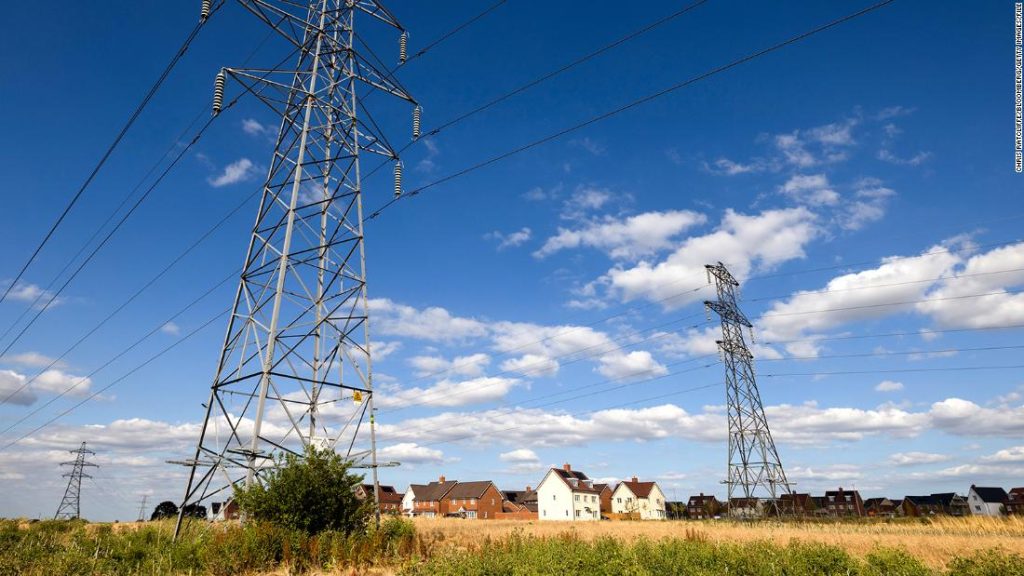Energy bills: UK recession looms as households feel pain

Official data published on Friday showed that the country’s GDP dropped by 0.1% in the second quarter of this year. Some analysts believe the recession forecast by the Bank of England last week has already begun.The decline was driven by a 0.4% drop in the service sector, mostly in the health services, and wholesale and retail trade, the Office for National Statistics said. Soaring energy prices have already helped push up inflation to a 40-year high of 9.4%, causing consumers to cut back on spending. Inflation is expected to peak about 13% later this year. According to estimates released Friday by energy research firm Auxilione, the average annual energy bill for millions of UK households is expected to hit £5,277 ($6,396) next spring after Ofgem, the country’s energy regulator, adjusts its price cap — the maximum amount suppliers can charge consumers per unit of energy. Earlier this week, research firm Cornwall Insight forecasted that the average household energy bill hit £4,266 ($5,177) a year from January — equating to about £355 ($431) a month. Based on those figures, the End Fuel Poverty Coalition (EFPC), said it expected the incomes of nearly one third of all UK households to fall below the poverty line after they’ve paid their energy. The Auxilione estimate breaks down to about £440 ($533) spent on gas and electricity per month between April and June next year, when the price cap is due to be adjusted again. UK household energy bills have already soared 54% this year as a result of rocketing wholesale costs, worsened by Russia’s invasion of Ukraine in late February. In May, the government announced a £15 billion ($18 billion) package of support — including a £400 ($485) payment to 29 million households from October — to ease the burden of energy bills. But as energy price forecasts have continued to balloon, many anti-poverty campaigners say the support does not go far enough. Simon Francis, coordinator for the EFPC, said on Tuesday that Cornwall Insights’ most recent price estimate meant the current level of government support amounted to a “drop in the ocean.”Recession fears growThe drop in GDP in the second quarter was slightly smaller than analysts had predicted.Still, it comes just one week after the Bank of England said it expected the country to fall into a recession — defined as two consecutive quarters of economic contraction — in the autumn, and for it to last through 2023.”It now looks like the UK economy entered a recession in the second quarter,” the National Institute of Economic and Social Research said in a Friday tweet. “We expect output to continue falling over the next three quarters,” it added. Other analysts held off calling the start of a recession, but are nonetheless pessimistic about where the world’s fifth largest economy is heading. Holger Schmieding, chief economist at bank Berenberg, said the new data represented a “prelude to [a] recession.””Squeezed between surging inflation and tightening monetary policy, we expect UK output to slide further in the coming quarters,” he said in a Friday note.




